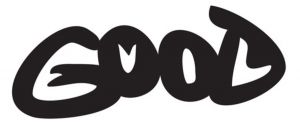Meta-Ethics: Difference between revisions
mNo edit summary |
mNo edit summary |
||
| Line 1: | Line 1: | ||
[[File:Good or evil.jpg|thumb|Isn't Good or Evil, just a matter of perspective?]] | [[File:Good or evil.jpg|thumb|Isn't Good or Evil, just a matter of perspective?]] | ||
'''While normal ethics addresses such questions as "''What should I do?''", evaluating specific practices and principles of action, meta-ethics addresses questions such as "''What is good?''" and "''How can we tell what is good from what is bad?''".''' At its core | '''While normal ethics addresses such questions as "''What should I do?''", evaluating specific practices and principles of action, meta-ethics addresses questions such as "''What is good?''" and "''How can we tell what is good from what is bad?''".''' At its core meta-ethics addresses the [[relativity of ethics]] (or moral relativism) which is the concept that something that is deemed ''good'' might not be good for everyone i.e. it is simply a matter of contextual [[framing]]. | ||
As information has become more of a commodity for clicks than proliferated on the merits of its objective truth this Good / Evil dichotomy. With the development of the [[Library of Babel]] (the internet contains sufficient information to equally disprove or support a theorem) TRUTH is become increasingly difficult to discern. | |||
Revision as of 03:33, 6 December 2022
While normal ethics addresses such questions as "What should I do?", evaluating specific practices and principles of action, meta-ethics addresses questions such as "What is good?" and "How can we tell what is good from what is bad?". At its core meta-ethics addresses the relativity of ethics (or moral relativism) which is the concept that something that is deemed good might not be good for everyone i.e. it is simply a matter of contextual framing.
As information has become more of a commodity for clicks than proliferated on the merits of its objective truth this Good / Evil dichotomy. With the development of the Library of Babel (the internet contains sufficient information to equally disprove or support a theorem) TRUTH is become increasingly difficult to discern.
